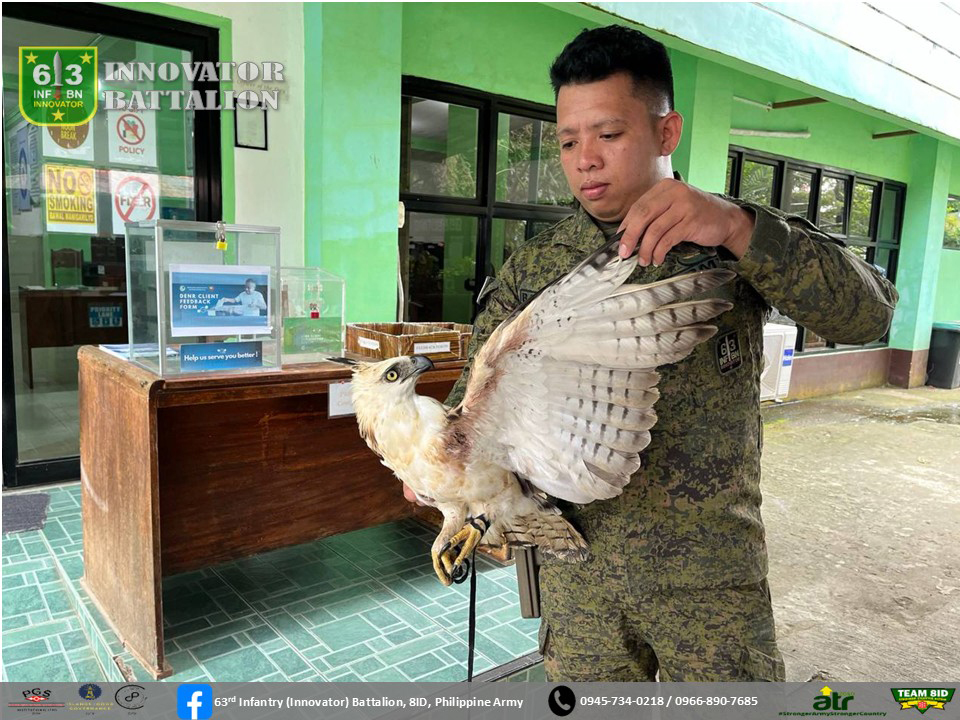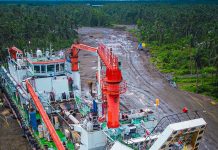
TACLOBAN CITY – Soldiers of the 63rd Infantry Battalion of the Philippine Army turned over a wounded Philippine Hawk Eagle to environment authorities on October 2, 2025, after it was found in the upland village of Benowangan, Borongan City.
The raptor was first discovered by a farmer in his farmland, who promptly sought the help of troops from the battalion’s Alpha Company stationed nearby. The soldiers immediately coordinated with the Community Environment and Natural Resources Office (CENRO) in Borongan City to ensure the bird’s treatment and rehabilitation.
The 63rd IB expressed gratitude to the concerned resident for his vigilance and quick action, noting that the case highlights how community-government cooperation is crucial in protecting endangered wildlife. The bird is now under the care of CENRO, receiving medical attention and conservation support.
Military officials said the incident also reflects the shared responsibility of both citizens and government forces in preserving the country’s environment and natural heritage.
The Philippine Hawk Eagle (Nisaetus philippensis), also known locally as “banog,” is classified as endangered by the International Union for Conservation of Nature (IUCN). Found mainly in tropical moist lowland forests, its population has steadily declined due to habitat loss, hunting, and illegal trapping.
Like the more well-known Philippine Eagle, the Philippine Hawk Eagle plays a vital ecological role as a top predator in forests, helping regulate prey populations and maintain biodiversity.
Conservation groups have long emphasized that protecting such raptors is critical to ensuring the health of the country’s forest ecosystems.
(ROEL T. AMAZONA)



